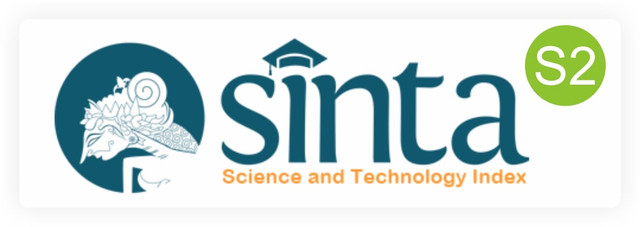PENETAPAN KADAR ASAM BENZOAT DALAM BEBERAPA MERK DAGANG MINUMAN RINGAN SECARA SPEKTROFOTOMETRI ULTRAVIOLET
DOI:
https://doi.org/10.12928/pharmaciana.v2i2.661Keywords:
Soft Drinks, Ultraviolet Spectrophotometry, Benzoic AcidAbstract
Benzoic acid is one of the synthetic preservatives, work effectively at pH 2.5 to
4.0, therefore it is widely used in acidic food or drink. This study aims to determine
benzoic acid content in some soft drink products, their conformity with Permenkes RI
No.722/Menkes/Per/IX/88 on food additives, and to find out if there were any variance
of benzoid acid content in a different kinds of soft drink products.
Determination of benzoid acid levels was performed by ultraviolet
spectrophotometry following solvent extraction of the benzoid acid with chloroform.
Qualitatively, it was found that all of the sample contained benzoid acid. Quantitatively,
the amount of benzoid acid in sample A was 227,73 mg/kg of materials; sample B was
182,38 mg/kg of materials; sampel C was 259,52 mg/kg of materials; sample D was
325,01 mg/kg of materials; sample E was 357,33 mg/kg of material. The result
indicated that there were variance of benzoid acid content in different soft drink
products. The use of benzoic acid in soft drinks was lower compaired to that of
Permenkes RI No.722/Menkes/Per/IX/88 (600 mg/kg of materials).
Downloads
Published
Issue
Section
License
Authors who publish with Pharmaciana agree to the following terms:
- Authors retain copyright and grant the journal the right of first publication with the work simultaneously licensed under a Creative Commons Attribution License (CC BY-SA 4.0) that allows others to share the work with an acknowledgment of the work's authorship and initial publication in this journal.
- Authors are able to enter into separate, additional contractual arrangements for the non-exclusive distribution of the journal's published version of the work (e.g., post it to an institutional repository or publish it in a book), with an acknowledgment of its initial publication in this journal.
- Authors are permitted and encouraged to post their work online (e.g., in institutional repositories or on their website) prior to and during the submission process, as it can lead to productive exchanges, as well as earlier and greater citation of published work.



1.png)











